选择热点
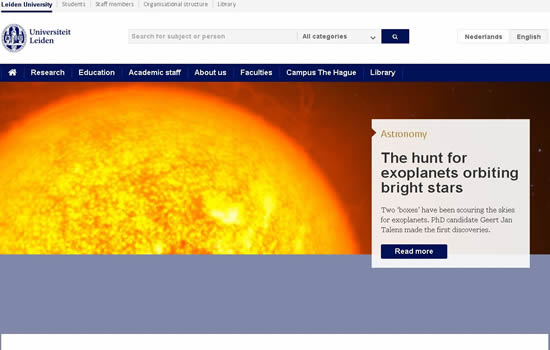 荷兰莱顿大学
荷兰莱顿大学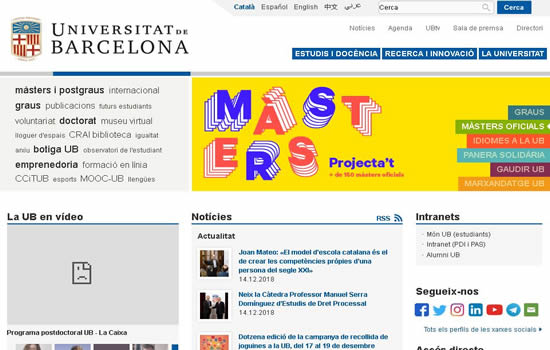 西班牙巴塞罗那大学
西班牙巴塞罗那大学 巴西圣保罗大学 University of Sao Paulo, Brazil
巴西圣保罗大学 University of Sao Paulo, Brazil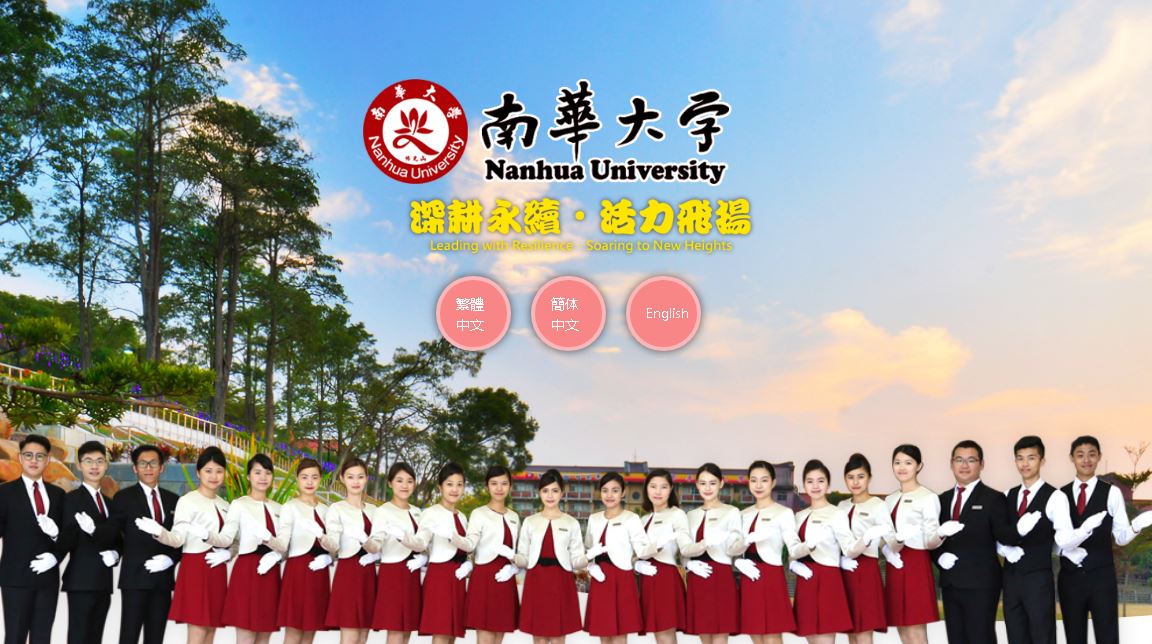 台湾南华大学 University of South China in Taiwan
台湾南华大学 University of South China in Taiwan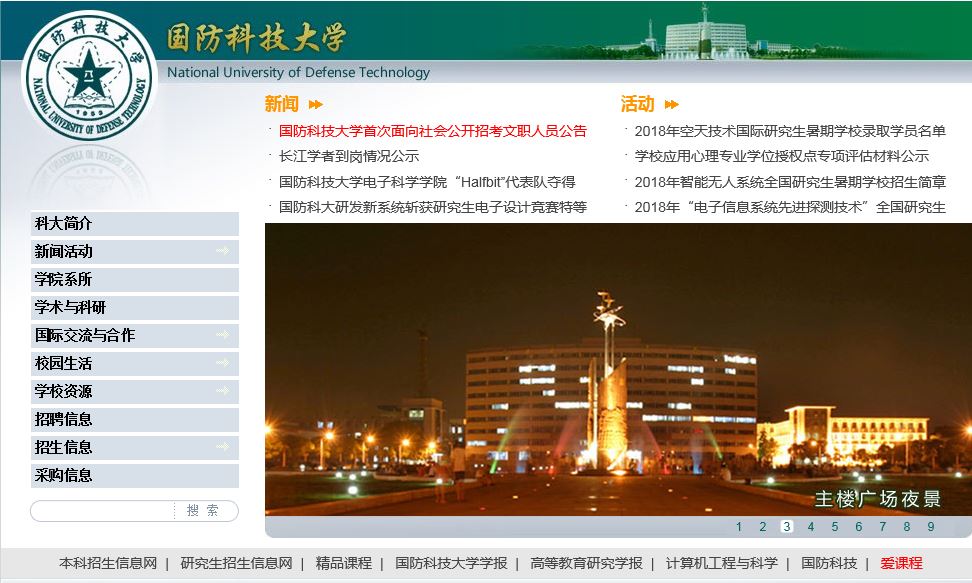 科技大学 National University of Defense Technology
科技大学 National University of Defense Technology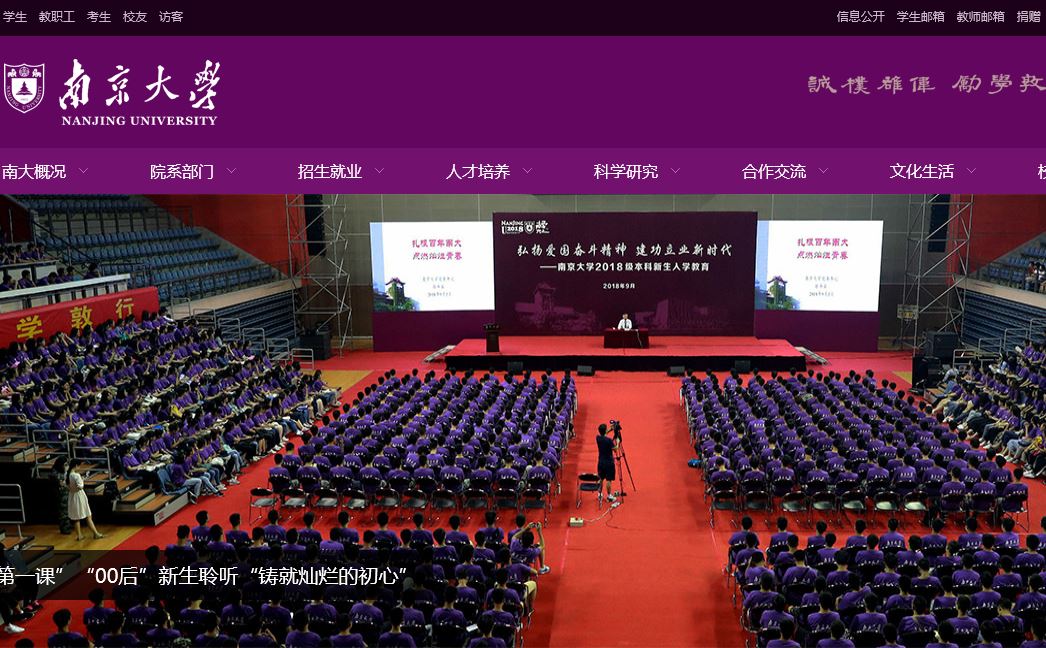 南京大学 Nanjing University
南京大学 Nanjing University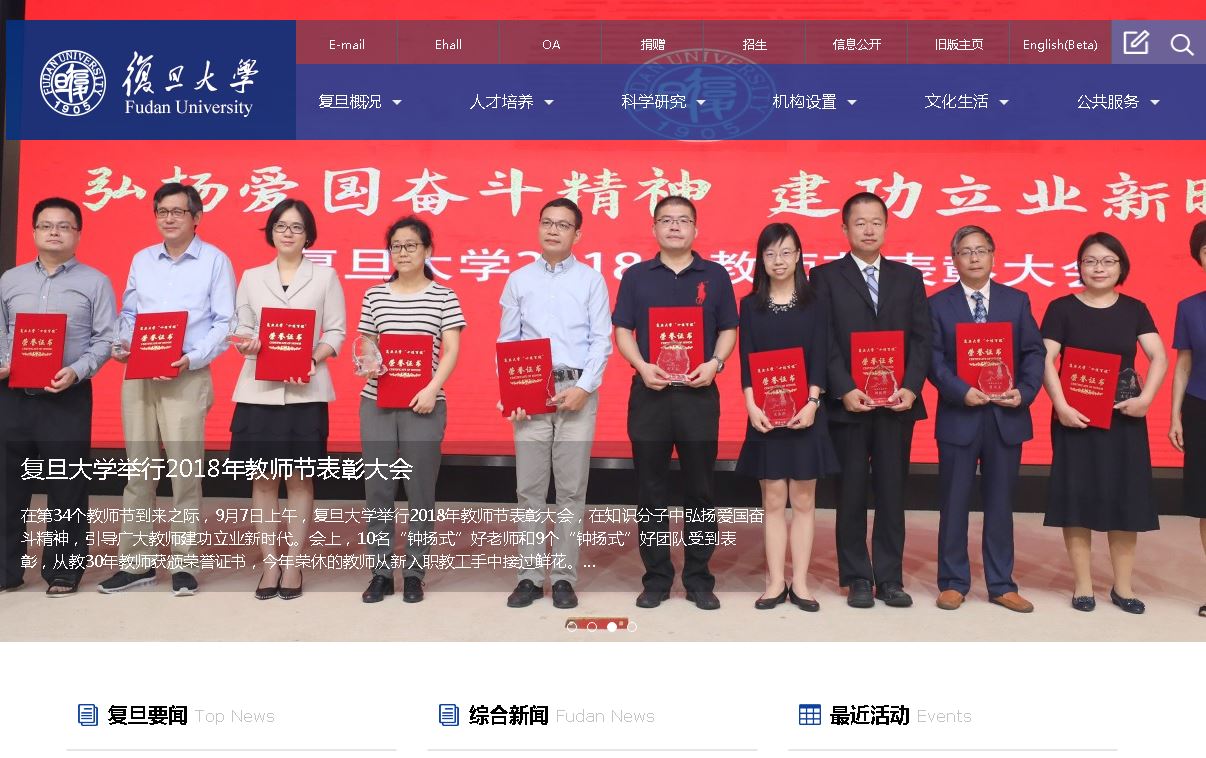 上海复旦大学 Fudan University
上海复旦大学 Fudan University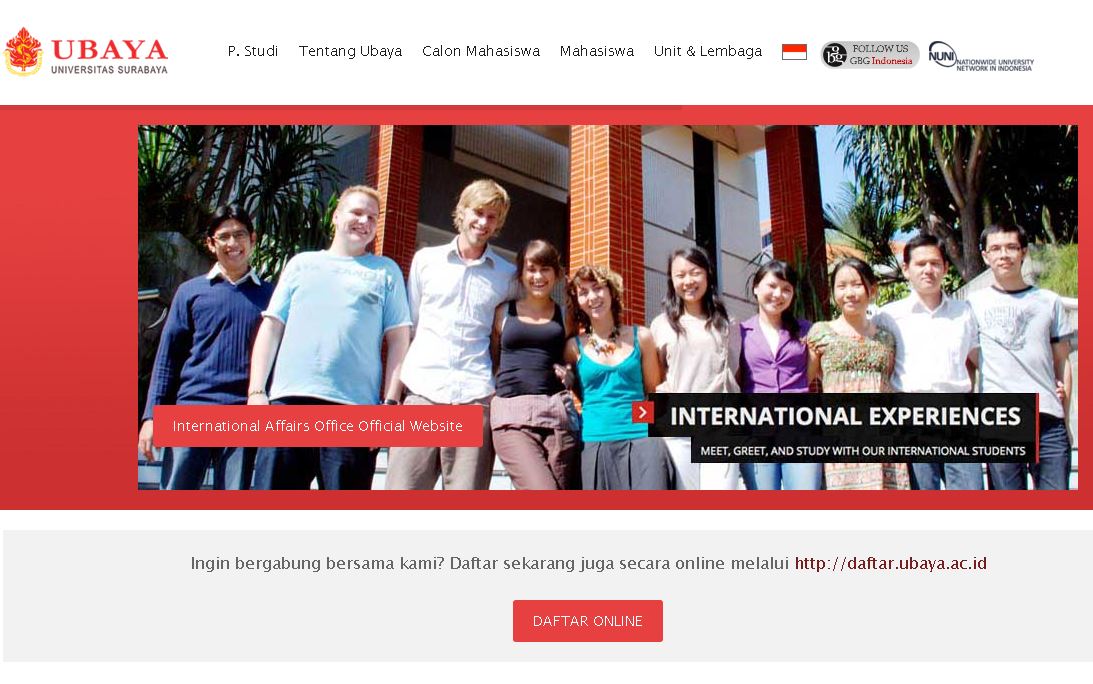 泗水大学(Ubaya)
泗水大学(Ubaya)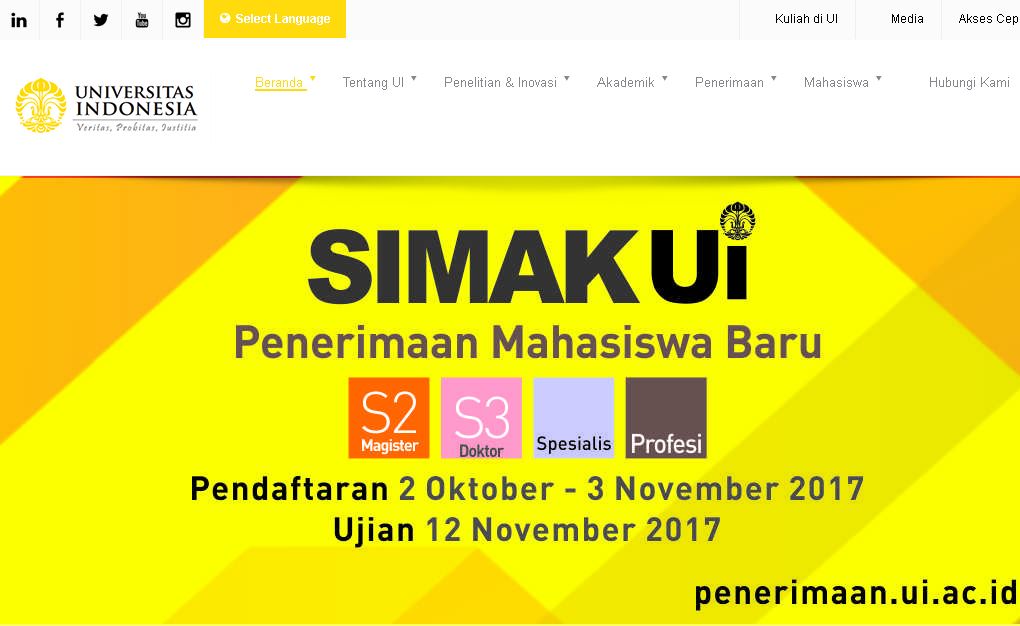 印尼大学 universitas indonesia
印尼大学 universitas indonesia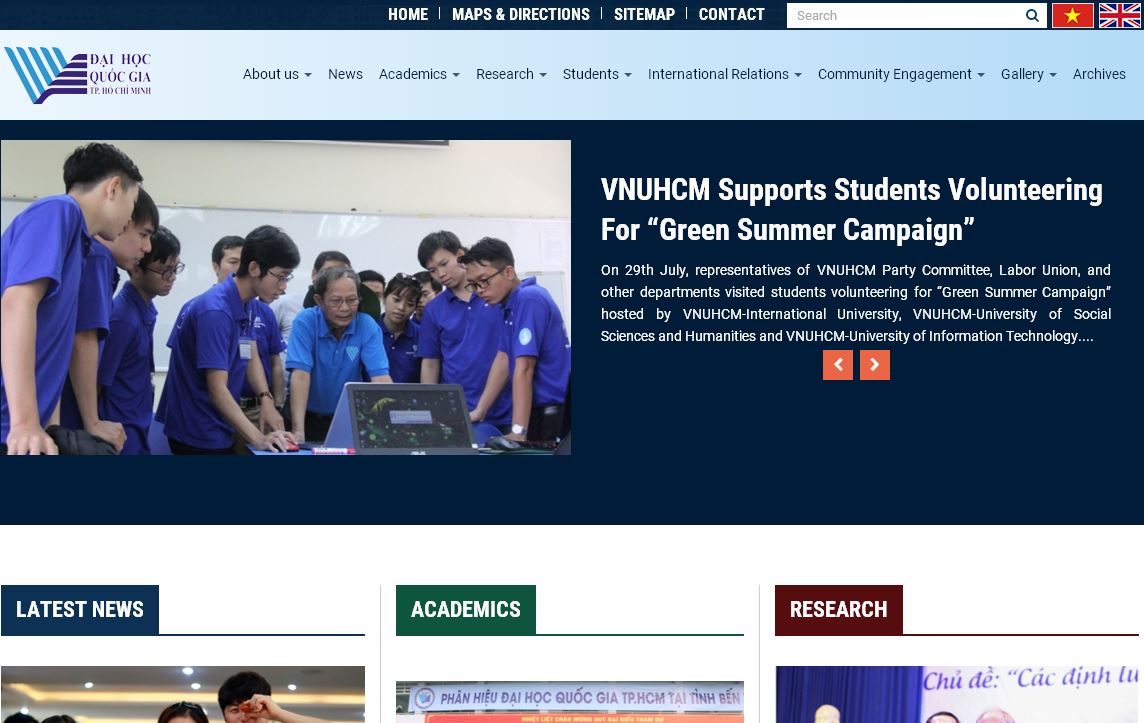 越南某大学 Vietnam National University
越南某大学 Vietnam National University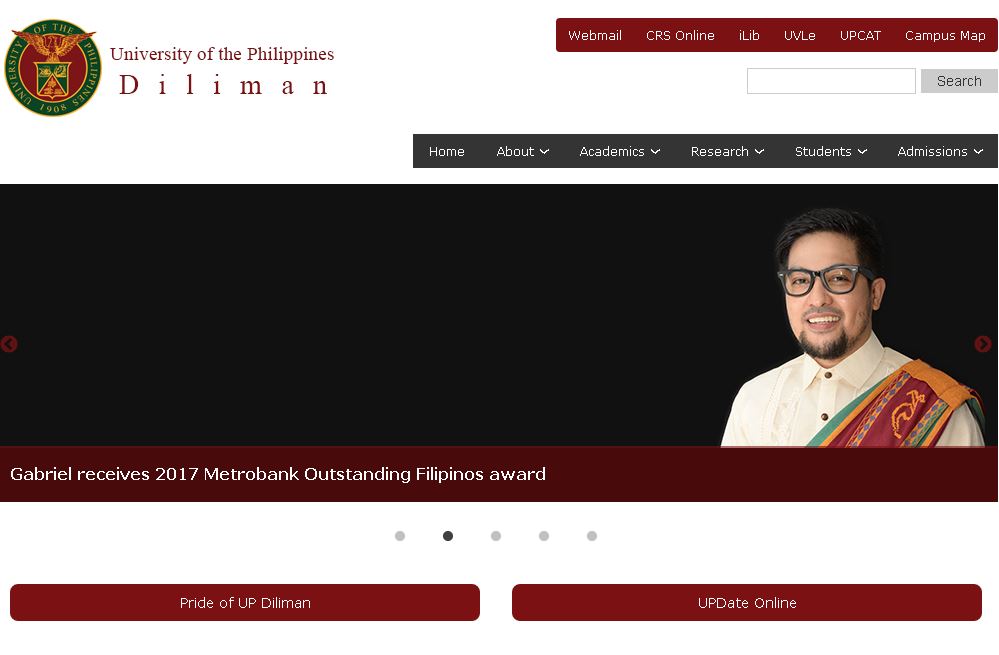 菲律宾大学 University Of The Philippines
菲律宾大学 University Of The Philippines
中国营养政策背后,“垃圾食品”公司的身影
发布时间:2025-01-06
来源:大学网站
Happy 10 Minutes, a Chinese government campaign that encouraged schoolchildren to exercise for 10 minutes a day, would seem a laudable step toward improving public health in a nation struggling with alarming rates of childhood obesity.
快乐十分钟”是中国政府发起的一项活动,鼓励小学生每天锻炼10分钟。
在一个儿童肥胖率令人担忧的国家,这似乎是朝着改善公共健康迈出的值得称赞的一步。
But the initiative and other official Chinese efforts that emphasized exercise as the best way to lose weight were notable for what they didn’t mention: the importance of cutting back on the calorie-laden junk foods and sugary beverages that have become ubiquitous in the world’s second largest economy.
但值得注意的是,该倡议及其他中国官方强调锻炼是最佳减肥方式”,却没有提及一点:减少摄入高热量垃圾食品和含糖饮料的重要性。
在这个全球第二大经济体,这些商品已经变得无处不在。
China’s fitness-is-best message, as it happens, has largely been the handiwork of Coca-Cola and other Western food and beverage giants, according to a pair of new studies that document how those companies have helped shape decades of Chinese science and public policy on obesity and diet-related illnesses like type 2 diabetes and hypertension.
根据两项新的研究,中国碰巧传递出健康最好”的信息,很大程度上是可口可乐及其它西方食品饮料巨头的手笔——这些研究记录了这些公司如何影响了几十年来中国在肥胖和乙型糖尿病、高血压等饮食相关疾病方面的科学和公共政策。
The findings, published Wednesday in ">The BMJ and The Journal of Public Health Policy, show how Coca-Cola and other multinational food companies, operating through a group called the International Life Sciences Institute, cultivated key Chinese officials in an effort to stave off the growing movement for food regulation and soda taxes that has been sweeping the west.
研究结果周三发表在英国医学杂志(BMJ)和公共卫生政策期刊(The Journal of Public Health Policy)上,表明可口可乐和其他跨国食品公司通过一个名为国际生命科学研究所(International Life Sciences Institute)的组织,与中国的关键官员建立联系,以避免西方各国日渐兴起的食品监管和碳酸饮料征税运动。
The group, known as ILSI, is a worldwide organization with a Washington headquarters, funded by many of the biggest names in snack foods, including Nestlé, McDonald’s, Pepsi Co.
and Yum!
Brands as well as Coca-Cola.
It has 17 branches, most of in them emerging economies like Mexico, India, South Africa and Brazil, and promotes itself as a bridge between scientists, government officials and multinational food companies.
这个简称ILSI的组织遍布全世界,其总部设在华盛顿,由零食业的许多巨头资助,包括雀巢、麦当劳、百事可乐、百胜(Yum Brands)和可口可乐。
它有17个分部,大多位于墨西哥、印度、南非、巴西等新兴经济体,对外宣传自己是科学家、政府官员和跨国食品公司之间的桥梁。
But in China, ILSI is so well-placed that it runs its operations from inside the government’s Centre for Disease Control and Prevention in Beijing.
In fact, when asked to comment on the studies, the ministry emailed a statement not from a government official but from ILSI’s China director.
但在中国,ILSI的地位高到在位于北京的中国疾病预防控制中心(Centers for Disease Control and Prevention)内部办公。
事实上,当被要求对上述研究置评时,该部门发出了一份电子邮件声明——并非来自政府官员,而是来自ILSI中国办事处主任。
The director, Chen Junshi, said the group had always emphasized the importance of both exercise and a well-balanced diet, and that its activities are based on science and are not affected by any business.
”其主任陈君石称,该组织向来同时强调锻炼与均衡饮食的重要性,其活动是基于科学,且不受任何企业的影响”。
The close relationship with the highest government health policymakers goes significantly beyond what the companies have been able to achieve in the West.
其与政府最高卫生决策者的密切关系远远超出了这些公司在西方所能实现的程度。
Coca-Cola tried similar tactics in the United States by partnering with influential scientists and creating a nonprofit called the Global Energy Balance Network to promote a message that exercise, not dieting, was the solution to the nation’s obesity crisis.
But in 2015, after an article in The New York Times on the efforts and subsequent outcry from public health advocates, the company disbanded the organization.
可口可乐曾在美国尝试过类似策略:通过与有影响力的科学家结为伙伴,并建立非营利组织全球能量平衡网(Global Energy Balance Network),以宣传锻炼——而非饮食——是该国肥胖危机解决之道的信息。
但在2015年,在 纽约时报 发表了一篇有关这些动作的文章,以及公共卫生倡导者后续进行谴责之后,该公司解散了这一组织。
In China, beginning in the late 1990s, ILSI organized obesity conferences, paid the way of Chinese scientists who attended the events and helped create national health campaigns aimed at tackling the country’s obesity epidemic, according to Susan Greenhalgh, a social scientist and China expert at Harvard who is the author of both studies.
据两项研究的作者、社会科学家、哈佛大学中国问题专家葛苏珊(Susan Greenhalgh)表示,在中国,ILSI从90年代后期便开始组织肥胖主题会议,支付参会中国科学家的行程费用,帮助打造旨在解决该国肥胖流行的全国性健康活动。
China’s public health initiatives almost always promote exercise, and they seldom mention the value of cutting calories or reducing the consumption of processed food and sugar-sweetened beverages, which many experts say is essential for losing weight, keeping it off, and improving health.
中国的公共卫生倡议几乎一向都侧重锻炼,很少提及减少热量摄入或减少摄入加工食品和含糖饮料的价值,而很多专家表示这对于减少、保持体重和改善健康必不可少。
You can’t use physical activity alone to get rid of obesity, hypertension or diabetes,” said Barry Popkin, a professor of nutrition at the University of North Carolina at Chapel Hill.
你不能光靠身体活动摆脱肥胖、高血压或糖尿病,”北卡罗来纳大学教堂山分校(University of North Carolina at Chapel Hill)营养学教授巴里·波普金(Barry Popkin)说。
Professor Popkin was not involved in the study, but he has spent decades working in China to help the country develop nutrition guidelines and food policy — efforts he said were often thwarted by well-placed officials aligned with ILSI.
波普金未参与此项研究,但他在中国工作了几十年,帮助该国制定营养指南和食品政策——他说这些努力经常遭到与ILSI结盟的高官阻挠。
Given his experience, he said Professor Greenhalgh’s findings were not surprising.
Over the course of several decades, Coke and ILSI have worked to prevent any kind of food policy that would benefit public health,” he said.
What they’ve been doing in China is insidious.
”鉴于他的经历,他说葛苏珊的研究结果并不意外。
几十年间,可口可乐和ILSI努力防止任何会使公共健康受益的食品政策,”他说。
他们在中国的所作所为是很阴险的。
”In a statement, ILSI said it was committed to backing evidence-based food and nutrition research” and that it did not conduct lobbying activities or make policy recommendations in the countries where it operates.
在一份声明中,ILSI称其致力于支持基于证据的食品营养研究”,且不在所运营的国家开展游说活动或进行政策建议。
ILSI does not profess to have been perfect in our 40-year history,” the statement said.
Not surprisingly, there have been bumps along the way.
This is why ILSI has analyzed best practices and has committed to ensuring scientific integrity in nutrition and food sector research.
”ILSI不宣称我们在40年的历史中毫无差错,”该声明说。
不意外的是,在此过程中有过一些波折。
正因为如此,ILSI分析了最佳做法,并致力于确保营养和食品领域研究的诚信。
”Coca-Cola said in a statement that it had also been changing the way it funded scientific research through greater transparency and by ending its practice of providing the lion’s share of money for studies.
In recent years, it added, Coca-Cola has sought to address mounting obesity in China by offering an array of new sugar-free beverages and through improved nutrition labeling on products.
We recognize that too much sugar isn’t good for anyone,” it said.
可口可乐在一份声明中表示,该公司还通过提高透明度和停止为研究提供最大份额资金的做法,改变资助科学研究的方式。
声明还说,近年来,可口可乐公司通过提供一系列新的无糖饮料和改善产品的营养标签,试图解决中国日益增长的肥胖问题。
我们认识到,太多的糖对任何人都不好,”它说。
Professor Greenhalgh’s findings were based on interviews with Chinese officials and scientists, and a review of public documents produced by Coca-Cola and ILSI.
葛苏珊的发现基于对中国官员和科学家的采访,以及对可口可乐和ILSI制作的公开文件的核查。
She said the industry efforts have been wildly successful, in part because China lacks a free media or watchdog organizations that might have been critical of the relationship.
她说,该行业的努力效果非常好,部分原因是中国缺乏自由的媒体或可能对这种关系持批评态度的监督机构。
In just a few decades, China has gone from a nation plagued by food shortages to one buffeted by soaring obesity and chronic diseases tied to poor diet.
More than 42 percent of adults in China are overweight and obese, according to Chinese researchers, more than double the rate in 1991.
In Chinese cities, nearly a fifth of all children are obese, according to government surveys.
在短短几十年时间里,中国已经从一个饱受食品短缺之苦的国家,变成了一个深受肥胖和与不良饮食有关的慢性病困扰的国家。
根据中国研究人员的数据,中国超过42%的成年人超重和肥胖,是1991年的两倍多。
根据政府的调查,在中国的城市里,将近五分之一的儿童肥胖。
The increases closely follow growing prosperity in China that began in the 1980s as Beijing embraced market economics after decades of isolation.
In 1978, Coca-Cola was among the first companies allowed into the country, and ILSI arrived soon afterward.
Seeking to identify influential scientists it could work with, the group found a partner in Chen Chunming, a leading nutritionist who was the founding president of the Chinese Academy of Preventive Medicine, the forerunner of China’s C.
D.
C.
这些增长与中国自1980年代开始的日益繁荣密切相关,当时中国政府在经历了数十年的孤立之后,开始拥抱市场经济。
1978年,可口可乐是首批获准进入中国的公司之一,ILSI随后很快进入中国。
为了寻找可以与之合作的有影响力的科学家,该组织找到合作伙伴陈春明,他是著名的营养学家,也是中国疾病预防控制中心的前身中国预防医学科学院的创始院长。
In 1993, Ms.
Chen became the head of ILSA-China and she remained a senior adviser to the organization until her death last year.
Professors Greenhalgh and Popkin said that Ms.
Chen was instrumental in stymying attempts to address soaring obesity by stressing the harmful impact of consuming highly processed food and sugary soft drinks.
1993年,陈春明成为ILSI中国的负责人,并一直担任该组织的高级顾问,直到于去年去世。
葛苏珊和波普金说,陈春明强调了精加工食品和含糖软饮料的有害影响,这对解决日益严重的肥胖问题起到了遏制作用。
In interviews, several Chinese nutrition experts said they were not bothered by the relationship between ILSI and multinational beverage companies like Coca-Cola, and they defended the integrity of ILSI-backed researchers, praising their professional bona fides.
He Jiguo, a nutrition professor at the College of Food Science and Nutritional Engineering at China Agricultural University, said that Coca-Cola had only amplified the notion that exercise is essential to human health, an idea long espoused by China’s ruling Communist Party.
在采访中,几位中国营养专家表示,他们不为ILSI与可口可乐等跨国饮料公司的关系感到困扰,他们为ILSI支持的研究人员的诚信进行了辩护,称赞他们的专业诚意。
中国农业大学食品科学与营养工程学院营养学教授何继国表示,可口可乐只是强化了锻炼对身体健康至关重要的观点,而这一观点一直受到中国执政的共产党的支持。
The key is that no matter what Cola-Cola or other beverage companies say, these drinks are just a product,” he said.
No one is being forced to buy them.
”关键是可口可乐也好,其他饮料也好,它就是一个产品,”他说。
它没有强制大家去做。
”With sweetened beverage consumption dropping in the United States and Europe, Coca-Cola increasingly views China and other developing countries as essential to maintaining profits.
China is the company’s third largest market.
随着美国和欧洲甜饮料消费量的下降,可口可乐越来越多地将中国和其他发展中国家视为维持利润的关键。
中国是该公司的第三大市场。
Martin McKee, professor of European public health at the London School of Hygiene and Tropical Medicine, said ILSI and other industry-funded groups that represent the interests of the tobacco, alcohol and fast-food companies have found fertile ground in poorer nations with weak public health bureaucracies.
伦敦卫生和热带医学院(London School of Hygiene and Tropical Medicine)欧洲公共卫生教授马丁·麦基(Martin McKee)表示,ILSI和其它由行业资助的代表烟草、酒精和快餐公司利益的团体,在公共卫生官僚机构薄弱的贫穷国家找到了肥沃的土壤。
Professor McKee, who wrote an editorial in the BMJ that accompanies the study, said such groups often claim to be independent think tanks but refuse to disclose detailed information about their funding.
麦基在 英国医学杂志 (BMJ)上发表了一篇与这项研究相关的评论文章。
他说,这类组织经常声称自己是独立的智库,但拒绝透露有关资金的详细信息。
These groups, he said, support and publicize scientific studies whose results sometimes muddy the waters on contentious issues like smoking or alcohol and soda consumption.
他说,这些组织支持和宣传的科学研究有时会在吸烟、饮酒和汽水消费等有争议的问题上混淆视听。
They often cherry pick data in ways that mislead while portraying these issues as so terribly complex that nothing can be done,” he said.
他们经常以一种误导的方式挑选数据,同时把这些问题描述得非常复杂,让人感觉什么都做不了,”他说。
【中国营养政策背后,“垃圾食品”公司的身影查看网站:[db:时间]】
快乐十分钟”是中国政府发起的一项活动,鼓励小学生每天锻炼10分钟。
在一个儿童肥胖率令人担忧的国家,这似乎是朝着改善公共健康迈出的值得称赞的一步。
But the initiative and other official Chinese efforts that emphasized exercise as the best way to lose weight were notable for what they didn’t mention: the importance of cutting back on the calorie-laden junk foods and sugary beverages that have become ubiquitous in the world’s second largest economy.
但值得注意的是,该倡议及其他中国官方强调锻炼是最佳减肥方式”,却没有提及一点:减少摄入高热量垃圾食品和含糖饮料的重要性。
在这个全球第二大经济体,这些商品已经变得无处不在。
China’s fitness-is-best message, as it happens, has largely been the handiwork of Coca-Cola and other Western food and beverage giants, according to a pair of new studies that document how those companies have helped shape decades of Chinese science and public policy on obesity and diet-related illnesses like type 2 diabetes and hypertension.
根据两项新的研究,中国碰巧传递出健康最好”的信息,很大程度上是可口可乐及其它西方食品饮料巨头的手笔——这些研究记录了这些公司如何影响了几十年来中国在肥胖和乙型糖尿病、高血压等饮食相关疾病方面的科学和公共政策。
The findings, published Wednesday in ">The BMJ and The Journal of Public Health Policy, show how Coca-Cola and other multinational food companies, operating through a group called the International Life Sciences Institute, cultivated key Chinese officials in an effort to stave off the growing movement for food regulation and soda taxes that has been sweeping the west.
研究结果周三发表在英国医学杂志(BMJ)和公共卫生政策期刊(The Journal of Public Health Policy)上,表明可口可乐和其他跨国食品公司通过一个名为国际生命科学研究所(International Life Sciences Institute)的组织,与中国的关键官员建立联系,以避免西方各国日渐兴起的食品监管和碳酸饮料征税运动。
The group, known as ILSI, is a worldwide organization with a Washington headquarters, funded by many of the biggest names in snack foods, including Nestlé, McDonald’s, Pepsi Co.
and Yum!
Brands as well as Coca-Cola.
It has 17 branches, most of in them emerging economies like Mexico, India, South Africa and Brazil, and promotes itself as a bridge between scientists, government officials and multinational food companies.
这个简称ILSI的组织遍布全世界,其总部设在华盛顿,由零食业的许多巨头资助,包括雀巢、麦当劳、百事可乐、百胜(Yum Brands)和可口可乐。
它有17个分部,大多位于墨西哥、印度、南非、巴西等新兴经济体,对外宣传自己是科学家、政府官员和跨国食品公司之间的桥梁。
But in China, ILSI is so well-placed that it runs its operations from inside the government’s Centre for Disease Control and Prevention in Beijing.
In fact, when asked to comment on the studies, the ministry emailed a statement not from a government official but from ILSI’s China director.
但在中国,ILSI的地位高到在位于北京的中国疾病预防控制中心(Centers for Disease Control and Prevention)内部办公。
事实上,当被要求对上述研究置评时,该部门发出了一份电子邮件声明——并非来自政府官员,而是来自ILSI中国办事处主任。
The director, Chen Junshi, said the group had always emphasized the importance of both exercise and a well-balanced diet, and that its activities are based on science and are not affected by any business.
”其主任陈君石称,该组织向来同时强调锻炼与均衡饮食的重要性,其活动是基于科学,且不受任何企业的影响”。
The close relationship with the highest government health policymakers goes significantly beyond what the companies have been able to achieve in the West.
其与政府最高卫生决策者的密切关系远远超出了这些公司在西方所能实现的程度。
Coca-Cola tried similar tactics in the United States by partnering with influential scientists and creating a nonprofit called the Global Energy Balance Network to promote a message that exercise, not dieting, was the solution to the nation’s obesity crisis.
But in 2015, after an article in The New York Times on the efforts and subsequent outcry from public health advocates, the company disbanded the organization.
可口可乐曾在美国尝试过类似策略:通过与有影响力的科学家结为伙伴,并建立非营利组织全球能量平衡网(Global Energy Balance Network),以宣传锻炼——而非饮食——是该国肥胖危机解决之道的信息。
但在2015年,在 纽约时报 发表了一篇有关这些动作的文章,以及公共卫生倡导者后续进行谴责之后,该公司解散了这一组织。
In China, beginning in the late 1990s, ILSI organized obesity conferences, paid the way of Chinese scientists who attended the events and helped create national health campaigns aimed at tackling the country’s obesity epidemic, according to Susan Greenhalgh, a social scientist and China expert at Harvard who is the author of both studies.
据两项研究的作者、社会科学家、哈佛大学中国问题专家葛苏珊(Susan Greenhalgh)表示,在中国,ILSI从90年代后期便开始组织肥胖主题会议,支付参会中国科学家的行程费用,帮助打造旨在解决该国肥胖流行的全国性健康活动。
China’s public health initiatives almost always promote exercise, and they seldom mention the value of cutting calories or reducing the consumption of processed food and sugar-sweetened beverages, which many experts say is essential for losing weight, keeping it off, and improving health.
中国的公共卫生倡议几乎一向都侧重锻炼,很少提及减少热量摄入或减少摄入加工食品和含糖饮料的价值,而很多专家表示这对于减少、保持体重和改善健康必不可少。
You can’t use physical activity alone to get rid of obesity, hypertension or diabetes,” said Barry Popkin, a professor of nutrition at the University of North Carolina at Chapel Hill.
你不能光靠身体活动摆脱肥胖、高血压或糖尿病,”北卡罗来纳大学教堂山分校(University of North Carolina at Chapel Hill)营养学教授巴里·波普金(Barry Popkin)说。
Professor Popkin was not involved in the study, but he has spent decades working in China to help the country develop nutrition guidelines and food policy — efforts he said were often thwarted by well-placed officials aligned with ILSI.
波普金未参与此项研究,但他在中国工作了几十年,帮助该国制定营养指南和食品政策——他说这些努力经常遭到与ILSI结盟的高官阻挠。
Given his experience, he said Professor Greenhalgh’s findings were not surprising.
Over the course of several decades, Coke and ILSI have worked to prevent any kind of food policy that would benefit public health,” he said.
What they’ve been doing in China is insidious.
”鉴于他的经历,他说葛苏珊的研究结果并不意外。
几十年间,可口可乐和ILSI努力防止任何会使公共健康受益的食品政策,”他说。
他们在中国的所作所为是很阴险的。
”In a statement, ILSI said it was committed to backing evidence-based food and nutrition research” and that it did not conduct lobbying activities or make policy recommendations in the countries where it operates.
在一份声明中,ILSI称其致力于支持基于证据的食品营养研究”,且不在所运营的国家开展游说活动或进行政策建议。
ILSI does not profess to have been perfect in our 40-year history,” the statement said.
Not surprisingly, there have been bumps along the way.
This is why ILSI has analyzed best practices and has committed to ensuring scientific integrity in nutrition and food sector research.
”ILSI不宣称我们在40年的历史中毫无差错,”该声明说。
不意外的是,在此过程中有过一些波折。
正因为如此,ILSI分析了最佳做法,并致力于确保营养和食品领域研究的诚信。
”Coca-Cola said in a statement that it had also been changing the way it funded scientific research through greater transparency and by ending its practice of providing the lion’s share of money for studies.
In recent years, it added, Coca-Cola has sought to address mounting obesity in China by offering an array of new sugar-free beverages and through improved nutrition labeling on products.
We recognize that too much sugar isn’t good for anyone,” it said.
可口可乐在一份声明中表示,该公司还通过提高透明度和停止为研究提供最大份额资金的做法,改变资助科学研究的方式。
声明还说,近年来,可口可乐公司通过提供一系列新的无糖饮料和改善产品的营养标签,试图解决中国日益增长的肥胖问题。
我们认识到,太多的糖对任何人都不好,”它说。
Professor Greenhalgh’s findings were based on interviews with Chinese officials and scientists, and a review of public documents produced by Coca-Cola and ILSI.
葛苏珊的发现基于对中国官员和科学家的采访,以及对可口可乐和ILSI制作的公开文件的核查。
She said the industry efforts have been wildly successful, in part because China lacks a free media or watchdog organizations that might have been critical of the relationship.
她说,该行业的努力效果非常好,部分原因是中国缺乏自由的媒体或可能对这种关系持批评态度的监督机构。
In just a few decades, China has gone from a nation plagued by food shortages to one buffeted by soaring obesity and chronic diseases tied to poor diet.
More than 42 percent of adults in China are overweight and obese, according to Chinese researchers, more than double the rate in 1991.
In Chinese cities, nearly a fifth of all children are obese, according to government surveys.
在短短几十年时间里,中国已经从一个饱受食品短缺之苦的国家,变成了一个深受肥胖和与不良饮食有关的慢性病困扰的国家。
根据中国研究人员的数据,中国超过42%的成年人超重和肥胖,是1991年的两倍多。
根据政府的调查,在中国的城市里,将近五分之一的儿童肥胖。
The increases closely follow growing prosperity in China that began in the 1980s as Beijing embraced market economics after decades of isolation.
In 1978, Coca-Cola was among the first companies allowed into the country, and ILSI arrived soon afterward.
Seeking to identify influential scientists it could work with, the group found a partner in Chen Chunming, a leading nutritionist who was the founding president of the Chinese Academy of Preventive Medicine, the forerunner of China’s C.
D.
C.
这些增长与中国自1980年代开始的日益繁荣密切相关,当时中国政府在经历了数十年的孤立之后,开始拥抱市场经济。
1978年,可口可乐是首批获准进入中国的公司之一,ILSI随后很快进入中国。
为了寻找可以与之合作的有影响力的科学家,该组织找到合作伙伴陈春明,他是著名的营养学家,也是中国疾病预防控制中心的前身中国预防医学科学院的创始院长。
In 1993, Ms.
Chen became the head of ILSA-China and she remained a senior adviser to the organization until her death last year.
Professors Greenhalgh and Popkin said that Ms.
Chen was instrumental in stymying attempts to address soaring obesity by stressing the harmful impact of consuming highly processed food and sugary soft drinks.
1993年,陈春明成为ILSI中国的负责人,并一直担任该组织的高级顾问,直到于去年去世。
葛苏珊和波普金说,陈春明强调了精加工食品和含糖软饮料的有害影响,这对解决日益严重的肥胖问题起到了遏制作用。
In interviews, several Chinese nutrition experts said they were not bothered by the relationship between ILSI and multinational beverage companies like Coca-Cola, and they defended the integrity of ILSI-backed researchers, praising their professional bona fides.
He Jiguo, a nutrition professor at the College of Food Science and Nutritional Engineering at China Agricultural University, said that Coca-Cola had only amplified the notion that exercise is essential to human health, an idea long espoused by China’s ruling Communist Party.
在采访中,几位中国营养专家表示,他们不为ILSI与可口可乐等跨国饮料公司的关系感到困扰,他们为ILSI支持的研究人员的诚信进行了辩护,称赞他们的专业诚意。
中国农业大学食品科学与营养工程学院营养学教授何继国表示,可口可乐只是强化了锻炼对身体健康至关重要的观点,而这一观点一直受到中国执政的共产党的支持。
The key is that no matter what Cola-Cola or other beverage companies say, these drinks are just a product,” he said.
No one is being forced to buy them.
”关键是可口可乐也好,其他饮料也好,它就是一个产品,”他说。
它没有强制大家去做。
”With sweetened beverage consumption dropping in the United States and Europe, Coca-Cola increasingly views China and other developing countries as essential to maintaining profits.
China is the company’s third largest market.
随着美国和欧洲甜饮料消费量的下降,可口可乐越来越多地将中国和其他发展中国家视为维持利润的关键。
中国是该公司的第三大市场。
Martin McKee, professor of European public health at the London School of Hygiene and Tropical Medicine, said ILSI and other industry-funded groups that represent the interests of the tobacco, alcohol and fast-food companies have found fertile ground in poorer nations with weak public health bureaucracies.
伦敦卫生和热带医学院(London School of Hygiene and Tropical Medicine)欧洲公共卫生教授马丁·麦基(Martin McKee)表示,ILSI和其它由行业资助的代表烟草、酒精和快餐公司利益的团体,在公共卫生官僚机构薄弱的贫穷国家找到了肥沃的土壤。
Professor McKee, who wrote an editorial in the BMJ that accompanies the study, said such groups often claim to be independent think tanks but refuse to disclose detailed information about their funding.
麦基在 英国医学杂志 (BMJ)上发表了一篇与这项研究相关的评论文章。
他说,这类组织经常声称自己是独立的智库,但拒绝透露有关资金的详细信息。
These groups, he said, support and publicize scientific studies whose results sometimes muddy the waters on contentious issues like smoking or alcohol and soda consumption.
他说,这些组织支持和宣传的科学研究有时会在吸烟、饮酒和汽水消费等有争议的问题上混淆视听。
They often cherry pick data in ways that mislead while portraying these issues as so terribly complex that nothing can be done,” he said.
他们经常以一种误导的方式挑选数据,同时把这些问题描述得非常复杂,让人感觉什么都做不了,”他说。
【中国营养政策背后,“垃圾食品”公司的身影查看网站:[db:时间]】
- 上一篇: 墨西哥燃料管道爆炸死亡数升至66人
- 下一篇: 俄罗斯企业计划将广告打到天上去
相关阅读
目录列表
资讯列表
英语资讯


共0条评论
网友评论温馨提示:您的评论需要经过审核才能显示,请文明发言!